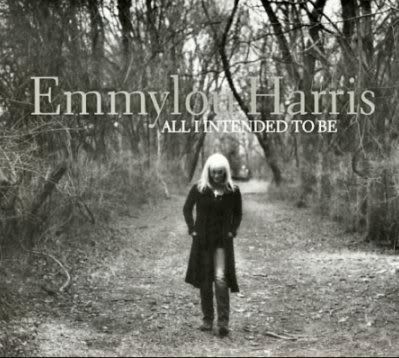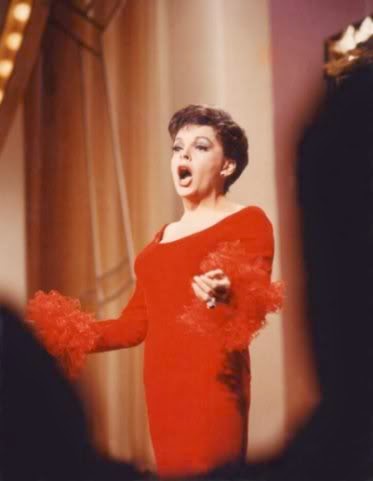“The Sound of Young America” was the slogan that Berry Gordy ascribed to the music coming out of his recording studios in Detroit, but Motown Records also proved a phenomenon. The caliber of songwriters, producers, musicians, and performers that assembled under Motown’s banner in the late ‘50s and throughout the ‘60s and early ‘70s rank among the most successful and creatively sophisticated of the twentieth century.
Commemorating the 50th anniversary of Motown’s inception and the label’s enduring legacy, Time Life Music has now released a substantial box set—comprised of 10 CDs and a DVD—entitled The Motown Collection.
As one would expect from a compilation of this nature and scope, the majority of its 150 songs are well-known hits from the label’s most-prominent artists, including Marvin Gaye, the Supremes, Stevie Wonder, Smokey Robinson and the Miracles, the Temptations, the Jackson 5, Gladys Knight and the Pips, and the Four Tops. Any serious music collection should already account for such artists (and, in many cases, with albums rather than assorted singles), yet this set would certainly fill the most conspicuous voids.
Worth mentioning is the inclusion here of lesser-known cuts or tracks by artists who didn’t yield the volume of material generated by their higher-profile labelmates. Songs like “He Was Really Sayin’ Something” by the Velvelettes (later covered by Bananarama), “First I Look At The Purse” by the Contours, and “The Hunter Gets Captured By The Game” by the Marvelettes fill out the set in generous measure.
Because it concentrates on Motown’s classic era and songs recorded by its classic artists in later years, the set suffers only in the few instances when it includes material that meets neither criteria. Songs like Debarge’s “Rhythm of the Night” and Boyz II Men’s “It’s So Hard To Say Good bye To Yesterday,” for instance, not only seem inferior among such gems, but also inconsistent with the quintessential Motown sound.
The accompanying DVD, Ed Sullivan’s Rock ‘n’ Roll Classics: Motortown Review, features 12 performances (from five acts) originally aired on Sullivan’s weekly variety show. Essentially a cursory companion to the music discs, it wouldn’t hold up as a standalone video, but it contains a few highlights nonetheless. In particular, the 1969 debut appearance by the Jackson 5—with this thriller of a kid singing lead vocals—includes a sensational version of “I Want You Back.” As well, Stevie Wonder’s 1968 appearance, during which he played “You Met Your Match” and “For Once In My Life,” offers a telling glimpse of where his talent would take him in just a few short years, beginning with Music of My Mind.
Of course, The Motown Collection is all about the music and, in that regard, its flaws are few and far between. Moreover, considering the breadth of this compilation, it more than lives up to its purpose in celebrating the quality and the legacy of Motown.
Commemorating the 50th anniversary of Motown’s inception and the label’s enduring legacy, Time Life Music has now released a substantial box set—comprised of 10 CDs and a DVD—entitled The Motown Collection.
As one would expect from a compilation of this nature and scope, the majority of its 150 songs are well-known hits from the label’s most-prominent artists, including Marvin Gaye, the Supremes, Stevie Wonder, Smokey Robinson and the Miracles, the Temptations, the Jackson 5, Gladys Knight and the Pips, and the Four Tops. Any serious music collection should already account for such artists (and, in many cases, with albums rather than assorted singles), yet this set would certainly fill the most conspicuous voids.
Worth mentioning is the inclusion here of lesser-known cuts or tracks by artists who didn’t yield the volume of material generated by their higher-profile labelmates. Songs like “He Was Really Sayin’ Something” by the Velvelettes (later covered by Bananarama), “First I Look At The Purse” by the Contours, and “The Hunter Gets Captured By The Game” by the Marvelettes fill out the set in generous measure.
Because it concentrates on Motown’s classic era and songs recorded by its classic artists in later years, the set suffers only in the few instances when it includes material that meets neither criteria. Songs like Debarge’s “Rhythm of the Night” and Boyz II Men’s “It’s So Hard To Say Good bye To Yesterday,” for instance, not only seem inferior among such gems, but also inconsistent with the quintessential Motown sound.
The accompanying DVD, Ed Sullivan’s Rock ‘n’ Roll Classics: Motortown Review, features 12 performances (from five acts) originally aired on Sullivan’s weekly variety show. Essentially a cursory companion to the music discs, it wouldn’t hold up as a standalone video, but it contains a few highlights nonetheless. In particular, the 1969 debut appearance by the Jackson 5—with this thriller of a kid singing lead vocals—includes a sensational version of “I Want You Back.” As well, Stevie Wonder’s 1968 appearance, during which he played “You Met Your Match” and “For Once In My Life,” offers a telling glimpse of where his talent would take him in just a few short years, beginning with Music of My Mind.
Of course, The Motown Collection is all about the music and, in that regard, its flaws are few and far between. Moreover, considering the breadth of this compilation, it more than lives up to its purpose in celebrating the quality and the legacy of Motown.







 I mention this fleeting encounter not as a means for self-indulgence, but to offer a first-hand impression of Emmylou Harris’ genuineness. She’s the real deal as much in person as on record and her latest album, All I Intended To Be, is certainly no exception.
I mention this fleeting encounter not as a means for self-indulgence, but to offer a first-hand impression of Emmylou Harris’ genuineness. She’s the real deal as much in person as on record and her latest album, All I Intended To Be, is certainly no exception.















